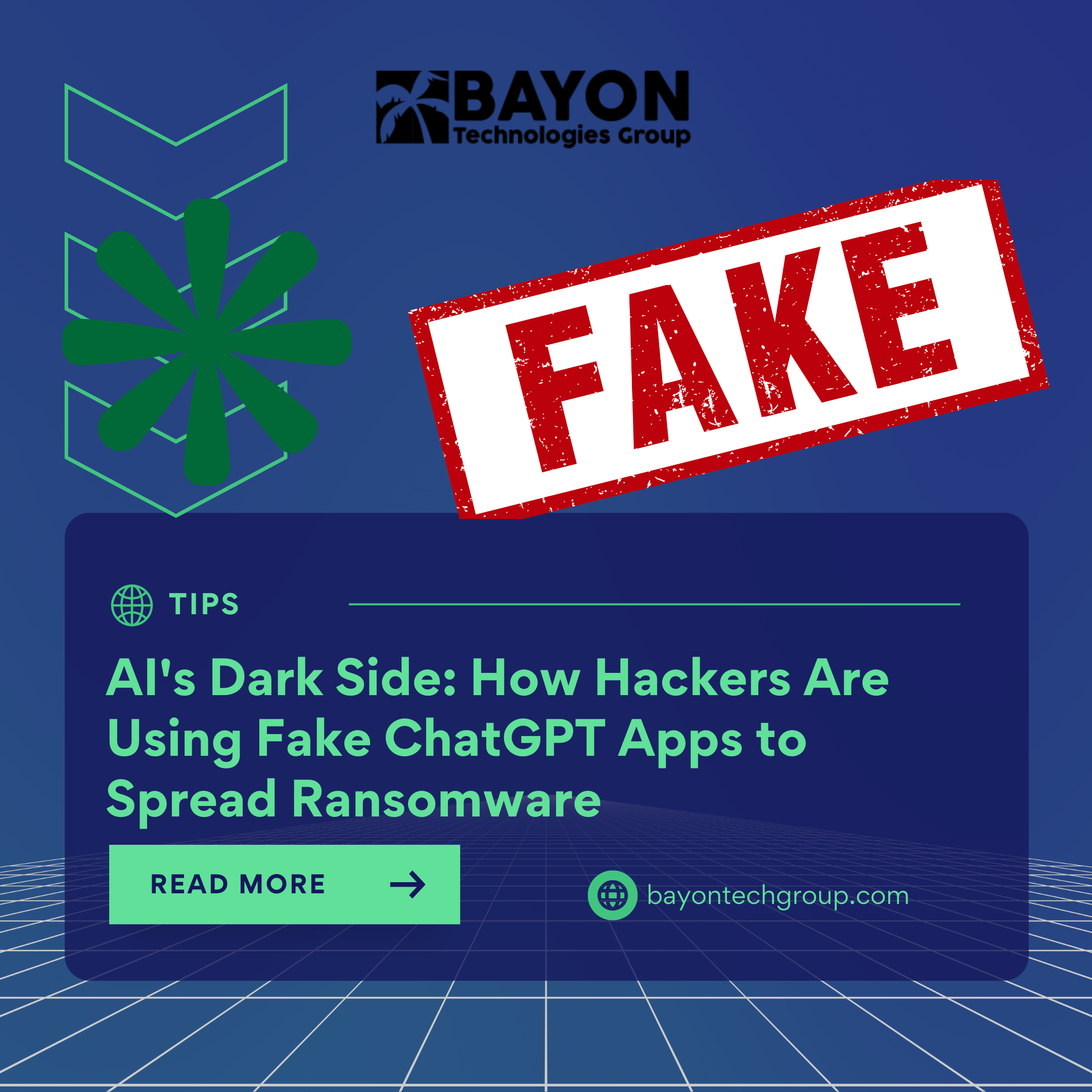AI's Dark Side: How Hackers Are Using Fake ChatGPT Apps to Spread Ransomware

With its ability to boost creativity and productivity to new heights, artificial intelligence solutions like ChatGPT have captured the attention of people all over the world. Cybercriminals, however, are fast to adopt new tactics in an attempt to take advantage of the public's curiosity for their own nefarious ends. Ransomware organizations are now using the ChatGPT brand as a weapon to deceive users into installing damaging backdoors on their computers, which is a risky new trend.
This clever exploit takes advantage of people's desire to use cutting-edge technologies. When looking for ways to employ AI, users may come across what looks to be a genuine desktop application for ChatGPT that can be downloaded. But this "ChatGPT.app" is actually a well-crafted trap—a wolf in sheep's clothes.
From Productivity Tool to Digital Prison Key
The scheme is a classic bait-and-switch with a modern, AI-themed twist. Here’s how it unfolds:
- The Lure: Victims are directed to a website promoting a fake Windows-based ChatGPT application. The site looks professional and convincing, capitalizing on the trusted OpenAI brand to appear legitimate.
- The Trap: Once the user downloads and runs the installer file, it doesn't deliver a working AI tool. Instead, it silently deploys a malicious backdoor, specifically a type of malware known as a Trojan.
- The Payload: This backdoor gives attackers remote control over the infected computer. From here, they can deploy additional payloads. In the cases observed by researchers, this access was used to launch a ransomware attack known as "Black Basta," which encrypts the victim's files and demands payment for their return.
Its social engineering is what makes this attack so brilliant. To get over user suspicion, hackers take advantage of the popularity and demand for a program like ChatGPT. When downloading software from unknown sites, consumers may normally exercise care, but this is overridden by the urge to utilize a trendy, powerful application.
Why This Threat is Particularly Sneaky:
- Exploits Trust: It gives dangerous software legitimacy by abusing the good name of a reputable AI enterprise.
- Targets Curiosity: It is made especially to draw in professionals, students, and tech enthusiasts who are keen to try out AI, making them a valuable target market.
- Deals a Double Blow: The first breach is only the start. It acts as a springboard for more damaging attacks, mostly ransomware that encrypts data, which can cause serious operational and financial harm.
How to Keep Yourself and Your Company Safe
Your best defense is diligence and strong security procedures:
- Use only official sources: Use AI tools only via their official online portals. Any third-party website that offers a "desktop version" of a free web tool should be avoided at all costs.
- Examine downloads carefully: Avoid downloading software from unreliable sources or links that are delivered to you through unwanted emails or texts.
- Maintain Strong Security: Make sure that every endpoint is safeguarded by cutting-edge anti-virus and anti-malware programs that are able to identify and block such attacks.
- You must educate your team. Constant security awareness training guarantees that everyone is aware that phishing and malvertising efforts can exploit even well-known companies as bait.
Avoid letting innovation become your greatest weakness.
Threats in the digital world are always changing to keep up with the newest trends. With a thorough cybersecurity strategy, we at Bayon Technologies Group assist companies in navigating these dangers. Proactive network monitoring, strong endpoint protection, and employee training are just a few of the defenses we offer to shield your data from such advanced threats.
Secure your operations against the latest cyber threats! Contact us today to learn how we can build a resilient defense for you.
‹ Back







